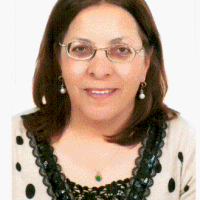
A blog of the Middle East Women's Initiative
Morocco has witnessed significant social development since it gained independence in the 1960s, exemplified in the education of young girls, which produced a new class of educated women, some of whom continued to teach at the university level, while others contributed to the entry of more Moroccan women in the labor market. In the seventies and eighties, Moroccan women launched into new fields of work including education, health and law. Some worked in the factories and some started to get involved in political, union and social work. They began forming their own associations that pushed for women’s right and contributed to social and economic development. They were the trailblazers and they certainly broke many barriers and proved their potential. However, this social transformation wasn’t accompanied by a shift in mindsets or an intellectual shift based on cultural, legal and legislative binding principles thereby making this development process slow and further complicating the work of these women leaders. Accordingly, the challenges women face in Morocco include the following:
p.p2 {margin: 0.0px 0.0px 0.0px 0.0px; font: 12.0px 'Helvetica Neue'; min-height: 14.0px}
li.li1 {margin: 0.0px 0.0px 0.0px 0.0px; font: 12.0px 'Helvetica Neue'}
span.s1 {font: 10.0px Menlo}
span.Apple-tab-span {white-space:pre}
ul.ul1 {list-style-type: disc}
- • Challenging conservative mindsets that sees women as inferior to men, that discriminate against women and that does not accept the notion of a woman leader. Despite the tireless efforts led by women and the progress made in many areas, this conservative mindset continues to dominate; as it continues to be propagated by both families and schools.
- • The challenge of discrimination in the laws that limits women’s initiatives and restricts any progress.
- • The challenge of financial independence, which curtails women’s decision-making independence.
- • The challenge of sexual harassment in all its forms; physical, psychological and sexual.
- • The challenge of family pressure and traditional responsibilities in the home. Women’s reproductive and caretaker roles are emphasized and further limit women from pursuing other roles in the workforce or civil society.
- • The challenge of poverty and illiteracy amongst women. The lack of opportunities to empower women further restricts them from realizing their full potential.
Despite all these challenges, we Moroccan women, continue to lead a social movement to push for more change. Society has now accepted women’s rights to education, work and leadership positions as absolutes. Morocco has also achieved gender equality in a number of domains including the political, economic, social and environmental, as stipulated in Chapter 19 of the Constitution. As a women's movement, we have also contributed to the democratization of the country by lobbying the government to join the human rights system and to sign a number of international conventions, especially on the rights of the child, women's rights and human rights. The 2011 Constitution affirmed the supremacy of these covenants over national laws. Successive governments have also worked to adapt national laws to these conventions. This led to changes in a number of laws including the Family Code, the Labor Code, the Nationality Law, and the access of women to positions of power.
The gains achieved thus far remain fragile and easily reversed. We still do not see the majority women enjoying these gains. As long as these rights remain unprotected by the traditional political power structures, we will not see any more progress. Further, the media and the private sector have a role in undermining these rights if they do not adopt this progressive social project.
Author


Middle East Program
The Wilson Center’s Middle East Program serves as a crucial resource for the policymaking community and beyond, providing analyses and research that helps inform US foreign policymaking, stimulates public debate, and expands knowledge about issues in the wider Middle East and North Africa (MENA) region. Read more

Explore More in Enheduanna
Browse Enheduanna
Women are the Catalysts for Change in Lebanon

How Education Can Empower Young Women in MENA


